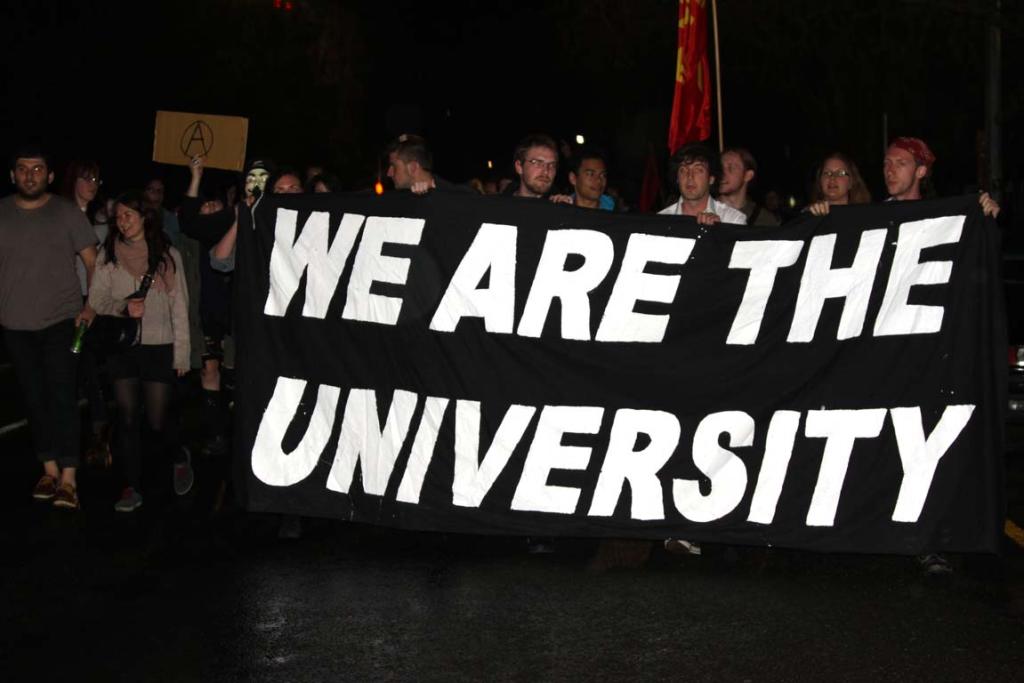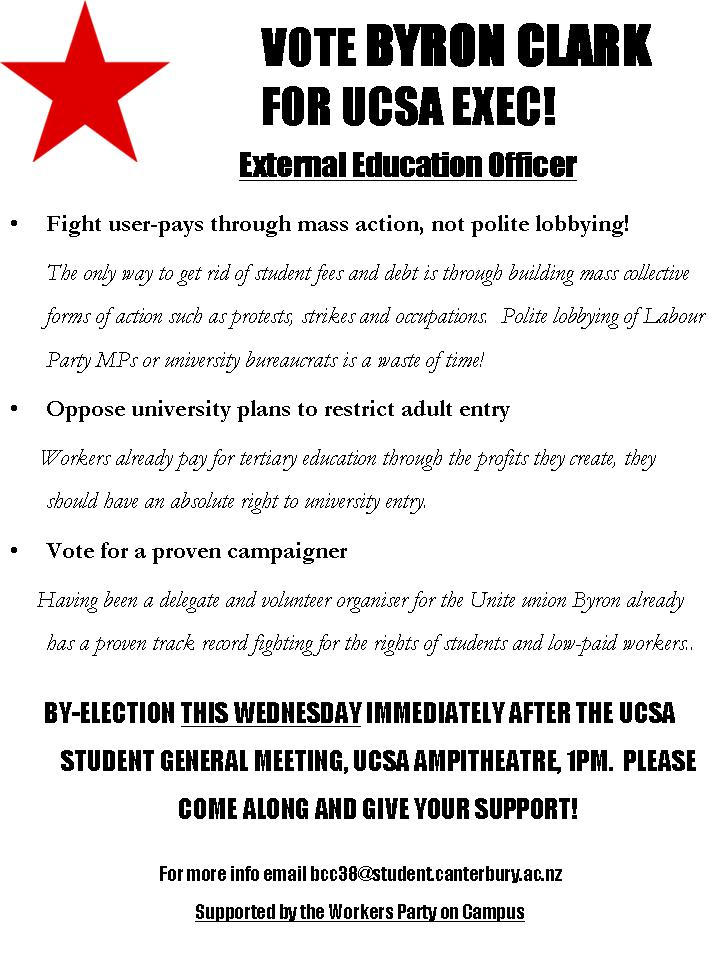 Joel Cosgrove
Joel Cosgrove
Universities are an important part of modern society. The Education Act of 1989 defines them as being the “critic and conscience of society”. In practice the record has been patchy at best. Students (and staff) have historically joined in repressive actions against striking wharfies in 1913, deputised and moblised to put down peaceful marches by unemployed workers during the depression.
In the documentary 1951 author Kevin Ireland recalls calling a Student Representative Council meeting to make a stand against the draconian laws passed to smash the locked out watersiders in 1951 and finding his progressive motions drowned out 10-1 by conservative students, bent on supporting the authoritarian actions of the state. Future Prime Minister and editor of the Victoria University student newspaper Salient described the (relative) progressive freedoms in place for women at the university in the mid-60’s as corrupting, stating that “If she does this [get involved in politics] she will never become a lady” as well as becoming losing their apparent “femininity”. Michael Laws first came to prominence at Otago University as a leading supporter of the Springbok Tour, with surveys at both Otago and Victoria Universities indicating a rough 50/50 split in opinion for and against the tour. Even during the ‘golden years’ (roughly the 1960’s-80’s) the role of the university was to pump out industry friendly graduates. Every freedom gained, was gained through struggle. Some of the early protests in the 60’s at Victoria University were over the right for students to have the ability to live in mixed gendered flats. Continue reading “Capitalist universities and fightback”
University uses state forces against activists
[youtube=http://www.youtube.com/watch?v=GAuy7pFn8L4]
Statement:
I/we call on Victoria University to lift the trespass notices on Heleyni Pratley and Joel Cosgrove.
(Organisation/title/institution for identification purposes only)
Student action knocks back transnational
– Sam Oldham
It is no secret that tertiary students in New Zealand are financially burdened. After the educational reforms of the 90s, the average student is today shackled by a lifetime of debt, only exacerbated by rising food and petrol prices and the rising cost of rent.
However, there is another threat to the welfare of many students that is not often addressed – the corporate ownership and profit from student hostels at many universities.
The hostel, or hall of residence, is the popular choice of most first-year tertiary students around the country when deciding where to live as they venture to new cities to engage in full-time study. These hostels, although coordinated by the universities, are most often under private ownership, usually by large domestic companies or multi-national corporations.
Victoria University of Wellington offers four major halls of residence to its prospective first-year students, and a number of minor hostels. Of these, only two are owned directly by Victoria University, the others by private enterprise. So the profit of only two halls is reinvested in students, the rest going straight to the private sector.
3 Workers Party members elected to 2009 VUWSA executive
– Workers Party Media Release
Workers’ Party member Jasmine Freemantle was elected President of the Victoria University of Wellington Students’ Association (VUWSA) for 2009 last Wednesday night.
Freemantle was elected by a comfortable majority over her Labour Party rival Sonny Thomas, after a heated campaign that fuelled the highest voter turn out in a VUWSA election since the early 1990s.
Continue reading “3 Workers Party members elected to 2009 VUWSA executive”
WP candidate contesting UCSA by-election
Workers Party leaflet against proposed Arts Cuts at Canterbury University
Once again, whole departments and their staff (academic and general) and students are under attack at Canterbury – and other universities. The attempt by Canterbury management to abolish American Studies and Film and Theatre Studies, while also wielding the axe against Classics and Art History is an attack on jobs, knowledge and students.
Universities in New Zealand are being turned increasingly into businesses. Just like a sausage factory produces and sells commodities called sausages, universities are being transformed into businesses which sell commodities called ‘degrees’.
The university as a business means charging students more in fees, crowding more students into classes, dumbing down courses for sale as commodities, increasing and intensifying the working hours of staff, holding down wages and eroding work conditions in general and cutting courses and departments which may be socially useful but don’t generate large amounts of money – all this in order to maximise profits.
The education system in universities is coming to more and more resemble factory-line production.
Why is this happening?

